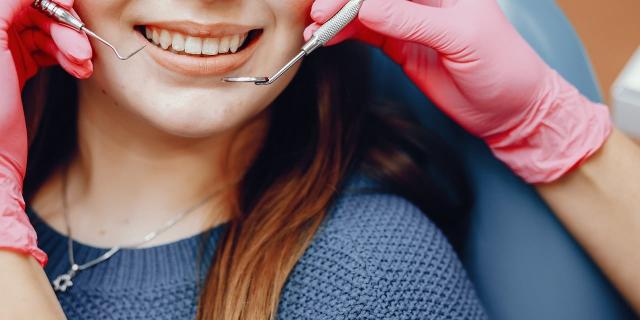One in six teenagers consumes more than 5kg of sugar throughout the year from sugary drinks alone – about the same weight as a family cat.
According to the Australian Dental Association (ADA), 42 percent of Australian children aged 5 to 10 years have experienced tooth decay in their primary teeth.
In the 6 to 14 age bracket, 24 percent have experienced tooth decay in their adult teeth, and 27 percent of kids aged 5 to 10 years have untreated dental decay.
So how can parents help to protect their kids’ teeth?
Consider tooth-friendly snacks, such as savoury popcorn.
The ADA’s Tooth-friendly Treats Cookbook includes 20 dentist-recommended sweet treat recipes.
Profits from the sales go to the Australian Dental Health Foundation, which helps disadvantaged Australians access dental care.
Parents should steer clear of hard lollies for their kids.
They’re made of 100 percent sugar and are often responsible for accidents involving broken teeth or fillings.
They also take longer to dissolve in the mouth, meaning the teeth are exposed to sugar for longer, increasing the risk of tooth decay.
When it comes to sugary drinks, there are typically 26 teaspoons of sugar in an average one-litre cola bottle.
So the ADA says parents should encourage their kids to drink tap water or milk instead of sugary drinks to help prevent decay.
Wait at least an hour between your last fizzy drink and teeth brushing. Brushing too soon can damage tooth enamel, softened by the acidity in the drinks.
Don’t forget to floss daily. It only takes a few minutes and helps to remove all the food debris sitting between your teeth.
Brushing removes only 60 percent of food debris, leaving particles of food rotting between your teeth.
Aside from food and flossing, mouthguards play an important role in looking after little smiles.
Australian Dental Association President Dr Scott Davis, a prosthodontist, said dentists often saw kids with traumatic dental injuries that could have been prevented – or damage reduced – had they been wearing a protective mouthguard.
“The best mouthguards are from your dentist as they’re customised to fit the size and shape of the patient’s mouth,” Dr Davis said.
If a tooth is knocked out and has been found, dentists advise putting it in a glass of milk and heading straight to your dentist, as they might be able to re-insert it.
Dr Davis also urged parents to access their free dental entitlement, as only 38 percent of eligible families used their Child Dental Benefits Schedule entitlement.
Qualifying families with children up to age 18 who receive Family Tax Benefit Part A or other Australian government payments are entitled to dental work up to the value of $1052 in every two-year period.
Families can check their child’s eligibility through their Medicare online account at MyGov.
Visit www.teeth.org.au/teeth/Shop for the Tooth Friendly Treats Cookbook.








